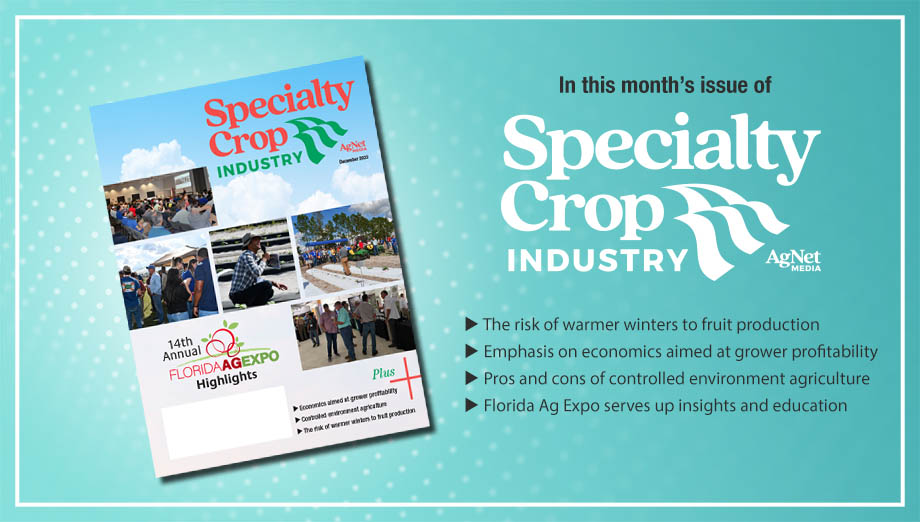The December issue of Specialty Crop Industry Magazine highlights the Florida Ag Expo, which was held on Nov. 2 at the Gulf Coast Research and Education Center in Wimauma, Florida.

This year’s Expo offered insight and education from industry leaders and university researchers into the latest trends impacting specialty crop production. Topics like crop protection, supply-chain issues, pest management and breeding were offered for attendees to learn about.
Pam Knox, an agricultural climatologist at the University of Georgia, discusses the risk of warmer winters to fruit production. Fruit trees, like peaches, apples and blueberries, require cold temperatures to accumulate chill hours to produce a crop the following season. If plants do not receive the chill hours they need, the number of blossoms produced is reduced. Yield is also reduced.
Amid the warmer winters, farmers can plant varieties more suited with the current climate and also plant multiple varieties with different chilling requirements.
Kristin Woods, a regional Alabama Extension agent, and Camila Rodrigues, an assistant professor and Extension specialist at Auburn University, talk about the pros and cons of controlled environment agriculture (CEA). It is a system where plants are produced intensively within a temperature, water, light and carbon dioxide-controlled environment. Plant production and the use of resources are optimized. Water and nutrients are used more efficiently.
CEAs can be subject to invasion, however, by small animals and rodents. The threat could be increased because of the water present in the growing environment. The expense and time to taking a CEA system offline for a thorough cleaning should also factor in a producer’s decision to follow through with this type of production system.
Tiffany Bailey, owner of Honeyside Farms in Parrish, Florida, emphasizes the importance of farmers implementing a strategic plan in place. This includes proper record keeping, managing rising input costs and collaborating with fellow growers.









